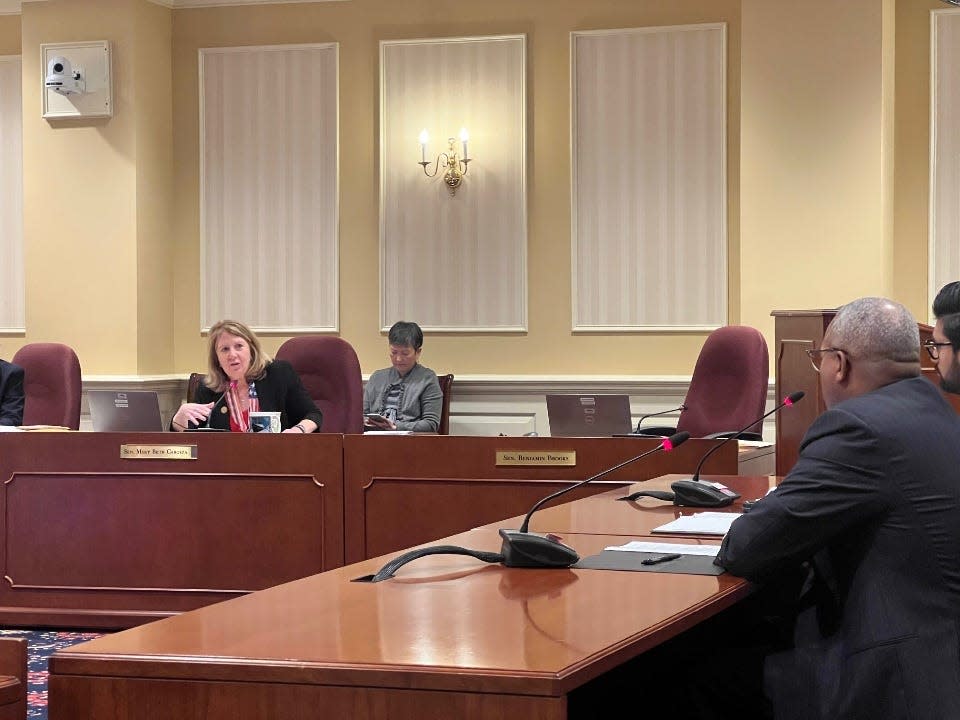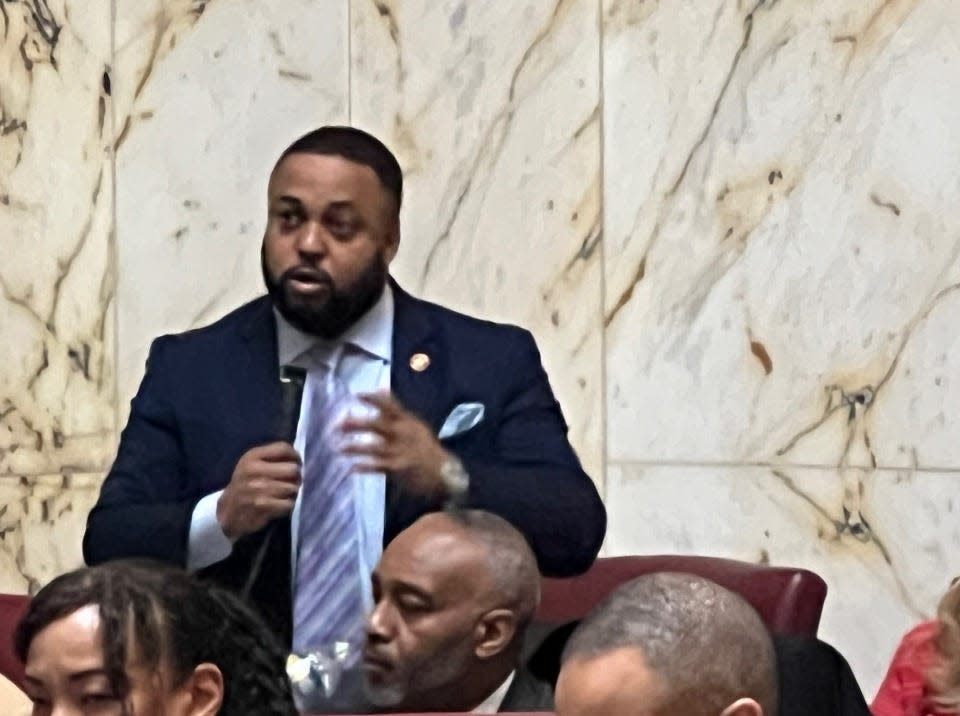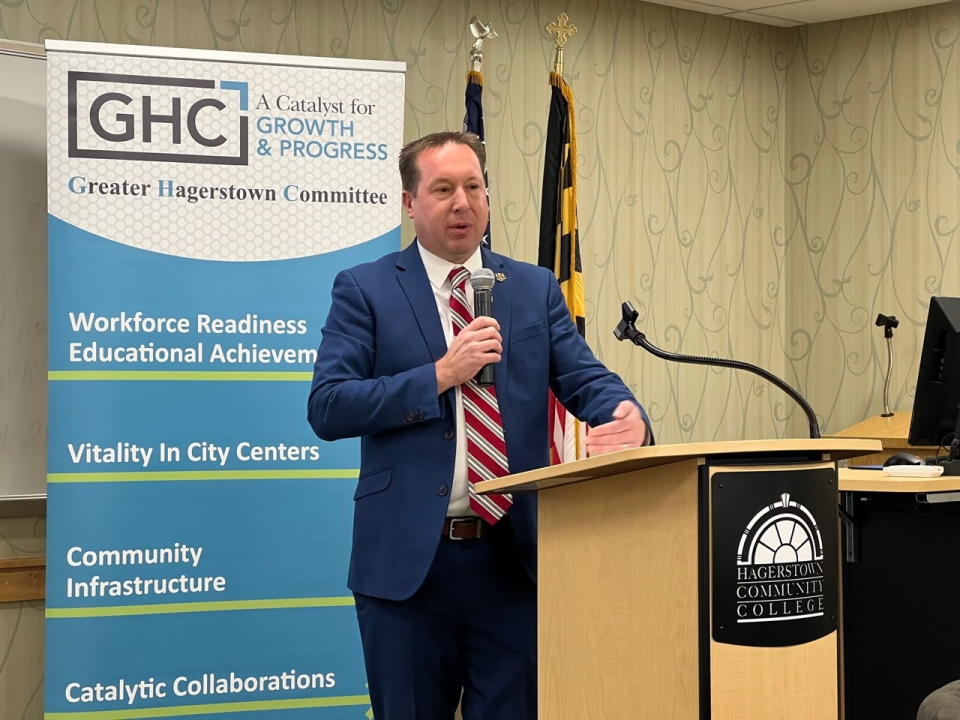Maryland bill seeks to streamline application process for items like licenses, permits
Some bills before the Maryland General Assembly are politically or emotionally charged. On Thursday, a piece of legislation was brought forth that fell in neither category, but its one that’s charged with expediting state government.
Whether it’s a hunting license, an elevator inspection certificate or a storm water permit necessary for a business, as a few examples, Maryland departments play a role in the various processes. The state’s governor and legislators are trying to make those all run a little easier for residents.
“This bill aims to identify the specific obstacles and work together to find solutions that will help Marylanders who are applying for this as well as agencies that are providing these permits,” said Saif Ratul, deputy legislative officer for Democratic Gov. Wes Moore, during a Feb. 22 hearing before the state Senate’s Education, Energy and the Environment Committee in Annapolis.
The Transparent Government Act of 2024, which has support from the legislative leaders of both parties, requires each unit of state government to create a catalog of each type of permit, license, and certification issued, the associated fee that is required, and a timeline for the processing. The bill creates a commission to compile the reports and make recommendations for improvements.
Mary Kane, president and CEO of the Maryland Chamber of Commerce and a former secretary of state during the Ehrlich administration, indicated the bill would benefit the business community, calling it a “crucial first step” in streamlining the state’s regulatory process.
More: Maryland’s new Artificial Intelligence advisor starts as legislator calls for privacy law
Maryland Chamber of Commerce CEO: ‘…they’re still waiting…’
During the hearing, Kane gave the example of one business that said in Tennessee, they were able to begin their project and go through all the local and state regulations within a year.
“In Maryland, they’re still waiting for multiple approvals on a similar project,” Kane told the committee, “and it’s been seven years.”
She indicated the legislation stemmed from a recommendation of the Maryland Economic Council, a group in which she participates. Moore created the council by executive order to help build the state's economic strategy last year.
Maryland Department of Commerce Secretary Kevin Anderson also called the bill a “first step” during a response to a question from state Sen. Mary Beth Carozza, R-Worcester/Wicomico/Somerset.

“The less time and energy (proprietors) need to spend on the permitting and licensing processes, the more time they can devote to growing their businesses,” said Anderson, during his testimony.
The legislation’s fiscal note states that positive impact of the bill on small businesses is less than clear.
“While the intent of the bill may be to make the application process for State-issued permits, licenses, and certificates less burdensome and more efficient, the bill does not directly improve or expedite the application process for licenses, permits, or certificates,” the note states.
In an interview after the hearing, Anderson gave the example of the state’s role in issuing a storm water permit necessary for a developer on a strict schedule with financial incentives to build.
“We’re making sure that things are done in just a real predictable clear process,” he said, of the state. (That particular permit for storm water is issued by the Maryland Department of the Environment, according to the state’s OneStop website, and requires 45 days of approval time.)
More: Maryland has slight bump in minority business participation, short of 'aspirational goal'
Maryland’s newest senator: ‘This is the time to make this happen’
The length of other administrative work in the state varies. During the hearing, state Sen. Katie Fry Hester, D-Howard/Montgomery, said she’s been dealing with well and septic permits for “like five years.” An elevator inspection from the state’s Department of Labor, however, is relatively quick.
“It typically takes about two weeks from receipt of the request to schedule a final compliance inspection for a new unit,” said David Dearborn, program manager of the Safety Inspection Unit, in an email. “Once the unit passes inspection and the paperwork is entered into the state database (usually within 24 hours), a certificate is printed and mailed to the owner the next business day.”
Maryland’s newest senator, state Sen. Nick Charles, D-Prince George’s County, appointed by Moore and sworn in last December, is one of the Senate backers and co-sponsors of the bill.

“Process improvement is always critical,” said Charles, who has worked on build and design projects for the United States Navy, during a Feb. 22 interview outside the Senate chamber.
Charles said technology has improved over the years, and he indicated government processes must improve too. “This is the time to make this happen,” he said.
More: Flooding photographs can be put to good use with Maryland-backed app
State senator from Washington County backs the bill
The Maryland Department of Natural Resources is one of the state agencies already amid an upgrade.
Gregg Bortz, a department spokesperson, said hunting licenses are “immediately valid” upon purchase and can be downloaded and printed or displayed electronically via Apple Wallet.
In an email, Bortz said the department “is on schedule to replace the current COMPASS online licensing system later this year with a new system that will greatly improve user experience, particularly to make renewals easier.”

State Sen. Paul Corderman, R-Washington/Frederick, also backed the bill as one of 24 Senate co-sponsors. “The public deserves transparency,” said Corderman, the top Republican on the Budget and Taxation Committee, when asked about the legislation during a Feb. 22 interview.
As the state faces fiscal challenges, the bill could also help balance the books, so to speak. It requires departments to specify how the revenue collected from application fees is allocated.
If enacted as introduced, reports would be due to the governor and Legislature by Dec. 1, 2024.
More: As Washington County grows, concern for county’s water and sewer systems do too
Dwight A. Weingarten is an investigative reporter, covering the Maryland State House and state issues. He can be reached at dweingarten@gannett.com or on Twitter at @DwightWeingart2.
This article originally appeared on Salisbury Daily Times: Bill, backed by Moore, economic council, aims to streamline processes

